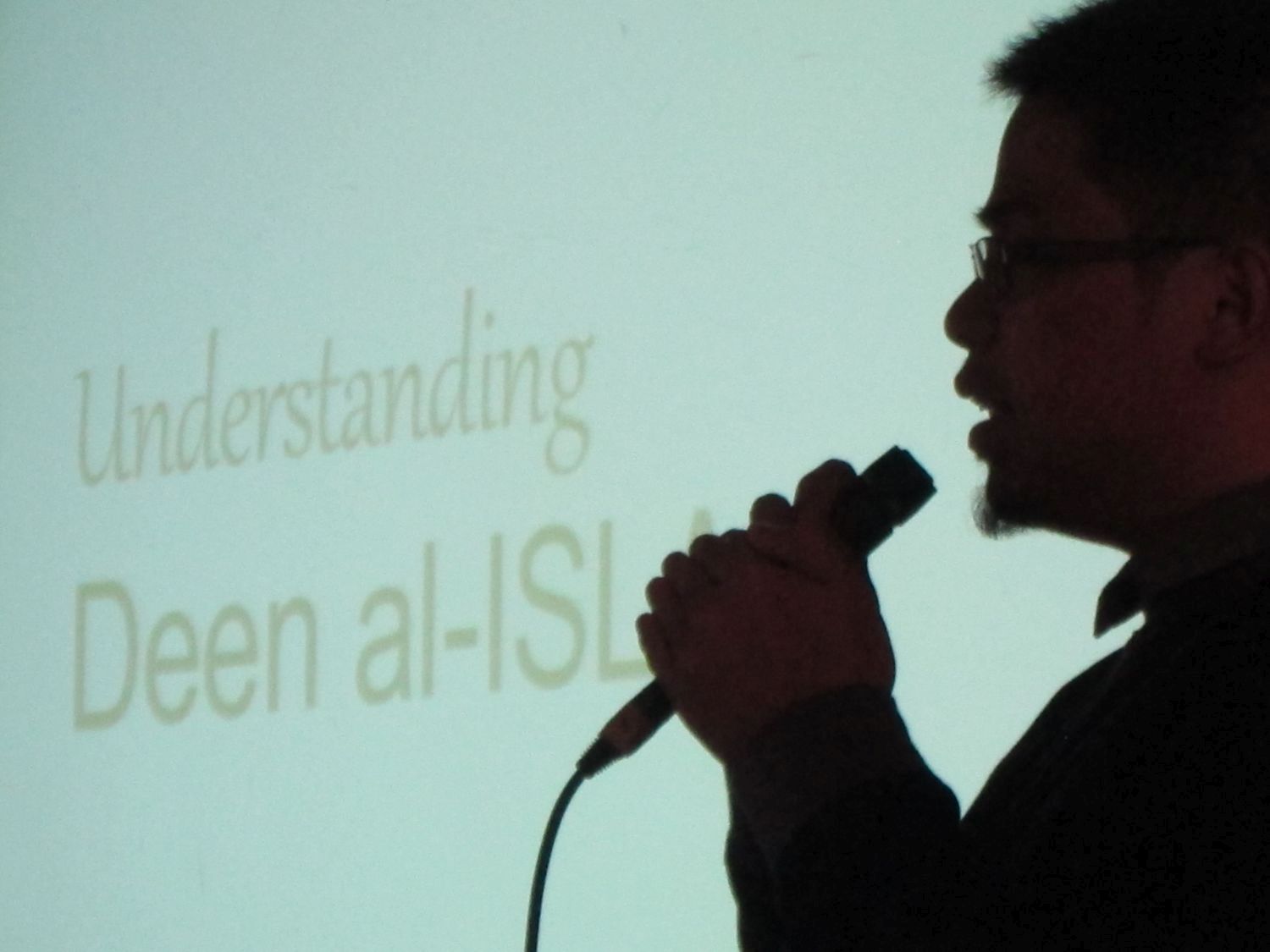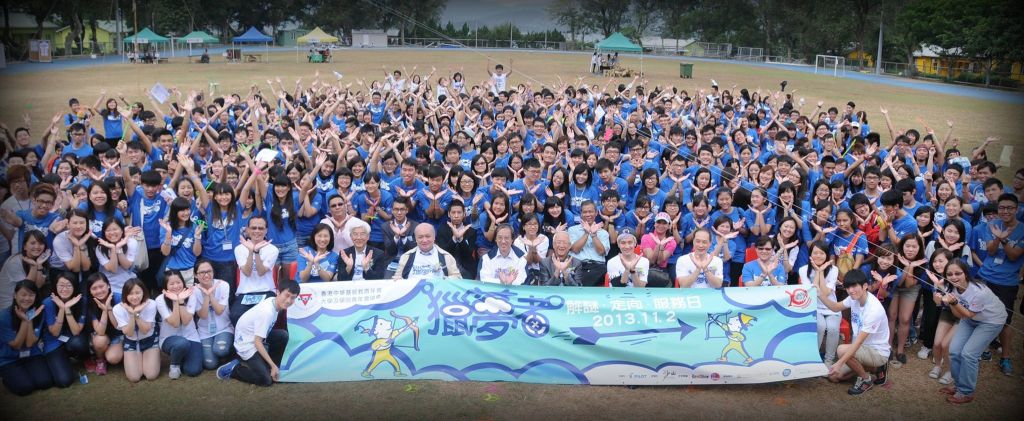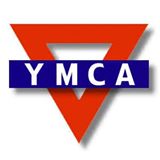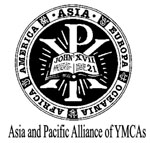Floating Mini-SOP held on the Peace Boat
The World Alliance of YMCAs invited YMCAs from all over the world to join the Peace Boat voyage beginning in Kobe, Japan, from March 21 to 29, 2015, and to participate in the mini-School of Peace (SOP) conducted by Interfaith Cooperation Forum (ICF) on board. The voyage took the participants from Kobe to Ishigaki Island in Okinawa to Keelung, Taiwan, to Naha in Okinawa again and finally to the Japanese city of Hakata.
Those who took advantage of this opportunity and joined the Peace Boat voyage were from YMCAs in China, India, Japan, Macau, Pakistan, South Korea, Sri Lanka, Taiwan and the United States. In addition, the General Secretary of the World Alliance, Johan Eltvik, and the World Alliance President, Peter Posner, as well as World Alliance staff members Romulo Dantas and Jose Varghese also took part. APAY was represented on the voyage by its General Secretary, Kohei Yamada, and Roger Peiris, APAY Youth Development Officer.
During the mini-SOP, the sessions focused on the multiple identities that each person possesses based on gender, race, nationality, religion, etc., and the ways that one’s identity can be a source of conflict today. The role of stereotypes and labeling in creating tensions and conflicts were highlighted, and the participants were encouraged to reflect on how attitudes shape perceptions of others who are different. Do people, for instance, merely tolerate others, accept them or engage with them? It was also explained how different forms of communication—discussion vs. dialogue—can potentially transform relationships among people with different identities as people seek to learn from others through dialogue instead of just argue with them during discussions. Lastly, the ICF resource team emphasized that conflicts cannot be resolved unless peace is rooted in justice, or justpeace.
In addition to the mini-SOP, the YMCA members on the Peace Boat heard the moving reflections of Hashizume Bun, a survivor of the atomic bomb that was dropped on Hiroshima in 1945, and the explanation of the former governor of Okinawa, Masahide Ota, about why the people of Okinawa reject the presence of U.S. military bases in Okinawa.
Among the exposure programs during port calls that enhanced the onboard programs above were an exploration of marine life on a glass-bottom boat in Ishigaki Island, a visit with Taiwan’s President Ma Ying-jeou and participation in a local protest against the construction of a new U.S. military base at Henoko, Okinawa.
|

|
| ↑ Tirmizy Abdullah, a 2010 School of Peace Muslim alumni from Mindanao in the southern Philippines, explains the teachings of Islam to the Peace Boat School of Peace participants. |
~ Bruce van Voorhis, ICF Coordinator
APAY Programs are all inter-connected
Coming to the final year of our quadrennial (2012-2015), we have gradually realized that our works are closely interconnected and it is also the time to re-create our visions. There were three big themes and twelve goals under our quadrennial thrusts:
- Movement Strengthening: 1) Governance, 2) Resource mobilization, 3) Leadership Development, 4) Partners Supporting Groups (PSG)
- Youth Empowerment: 5) Youth Reps/ Change Agents, 6) Youth Conference/Work Camp, 7) Global Citizenship
- Issues and Concern: 8) Gender Mainstreaming, 9) Global Alternative Tourism Network (GATN), 10) Green Team and Climate Change, 11) Peace with Interfaith Cooperation, 12) Disaster Response/Risk Reduction
The Movement Strengthening has been mainly for supporting the new and developing YMCAs in our area. However, it has been a trend that even the big YMCAs have realized the need to change themselves especially in their own governance when we think about the roles and expectations from the serving communities. I also think this is the time we realized the needs of Resource Mobilization within our own community. It has to involve Lay persons’ time and commitment in the YMCA mission. This is closely related to the governance.
In terms of Youth Empowerment, the World Alliance has been focusing on “Change Agents” as a good model of Youth Empowerment. In the last World Council at the small group discussion, our group proposed that the YMCA should be “For Youth, With Youth and By Youth”. In reality, however, the majority of YMCAs in our area are still “For Youth” only. This goal of “With Youth and By Youth” could be more effectively accomplished if our local YMCAs shared the same goal. It would take time and understandings from the local leaders and from the youth themselves.
The third theme, Issues and Concern, was coming from the question, “What would be real issues in the future societies?” Ten years later, what would be the concerning issues in the Asia/Pacific area? Maybe that is “Global Warming and Climate Change”, “Gender Mainstreaming”, “Developing effective tools for youth empowerment”, “Conflicts based on different faiths” and/or “Increasing number of disasters”. Some countries may be facing with the elderly society due to decreasing number of child birth” which could be closely related to the increasing numbers of international migrants. We need to think our roles in coming years with the above issues in our society. Those could be the serious realities when the present youth reach to 30’s and 40’s.
I have gradually realized all the issues and our goals are interrelated closely. We need to develop service learning program (GATN) as a tool for Global Citizenship Education which would empower many young people. More young people should be prepared to respond to the serious issues in the communities. We also need to think more of the inter-connectedness of these issues instead of dealing with them separately. YMCA could have greater potential to equip our young people to challenge those future issues.
Our role is to create great assets (Empowered Youth) for the future society. Global Citizenship Education and Global Alternative Tourism Network (GATN) could be really effective tools for the young people to realize issues in their communities. We need to develop those young people who are interested in and willing to respond to those issues. Our global network would help them feel solidarity and interconnectedness among themselves. This is a big role of the YMCA wherever YMCA exists. For these activities, we need to mobilize resources (volunteers and funds). To make such YMCA, its governance including the formation of strong board and capacity building of the staff of the YMCA are the key to create for the future.
Thus I have seen that the three themes and 12 goals have been closely interconnected among themselves, and the board and staff members of the YMCA should be aware of such interconnectedness in our daily work.
~ Kohei Yamada, General Secretary
Chinese YMCA of Hong Kong wins Social Welfare Department Award

In the recent “2015 Student and Youth Volunteering Award Presentation Ceremony” held by the Steering Committee on Promotion of Volunteer Service of the Social Welfare Department of the Hong Kong Government, Dream Hunter Riddle Charity Challenge (Dream Hunter in short) won The First Runner-up Title in “2013-14 Best Student and Youth Volunteer Service Project Competition” under the Category of Tertiary Institutions. Dream Hunter was organized by the Alliance of University & College YMCAs, a student organization affiliated to Chinese YMCA of Hong Kong, in November 2013. Comprising riddle challenges, orientation tasks, and social services, Dream Hunter had successfully gathered over 450 youths in Hong Kong to collect resources and gifts upon completion of different tasks at designated locations in the city and deliver them to about 1,200 elderlies, underprivileged children and ethnic minorities being served in over 50 different social welfare organizations in Hong Kong, thus allowing them to bring love and care to the community. All funds raised are used to support the event and all socials services of the Alliance of University & College YMCAs.
Established in July 2013, the Alliance of University & College YMCAs aims to strengthen the linkage among all 7 University YMCA® and 2 College YMCA® units in Hong Kong; to enhance communications between members and Chinese YMCA of Hong Kong for development of future leaders; to offer programs among different units to members and bring positive changes to the society; and to broaden students’ horizons through the exchange experiences with overseas YMCAs.
New General Secretary of Taipei YMCA
 Mr. David H. Lee has retired from the post of General Secretary on March 17, 2015. He will continue to offer his services as an advisor to the Board of Directors of Taipei YMCA. Following the retirement of Mr. Lee, Dr. James Tou, Executive Director assumed the General Secretary post effective from the same day, March 17, 2015. Mr. David H. Lee has retired from the post of General Secretary on March 17, 2015. He will continue to offer his services as an advisor to the Board of Directors of Taipei YMCA. Following the retirement of Mr. Lee, Dr. James Tou, Executive Director assumed the General Secretary post effective from the same day, March 17, 2015.
APAY congratulates both of them.
|





